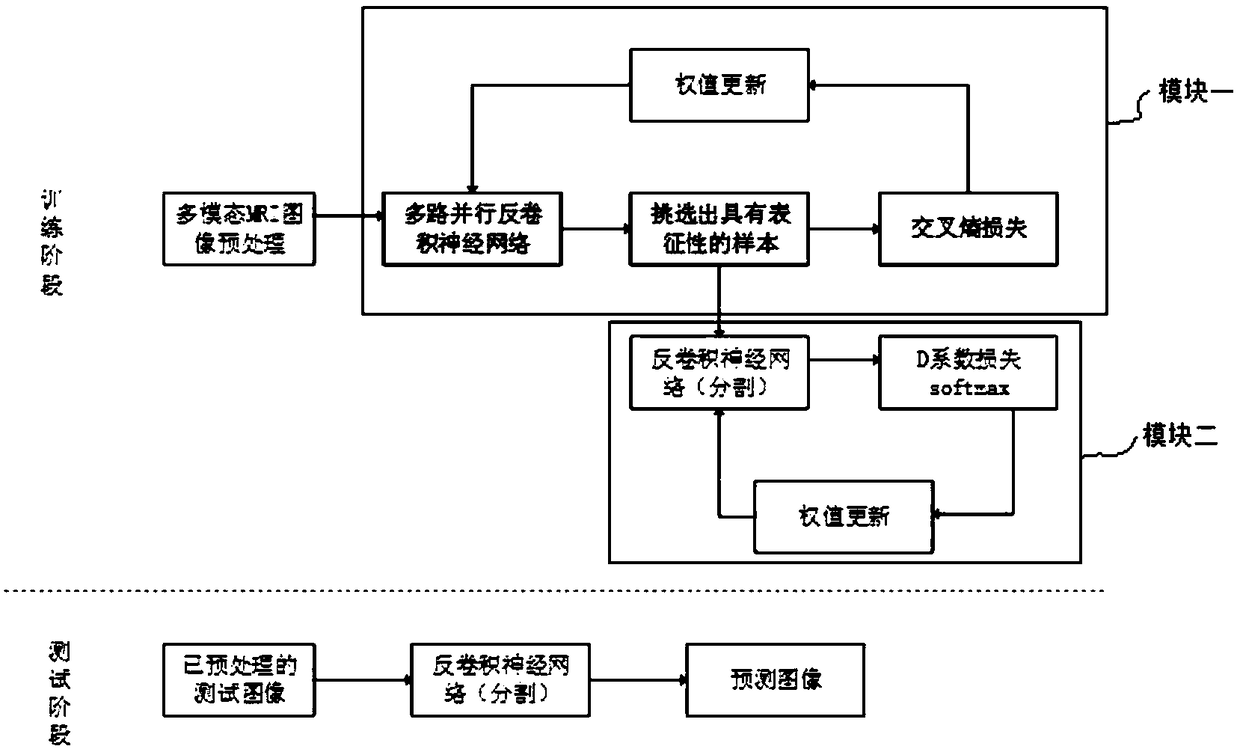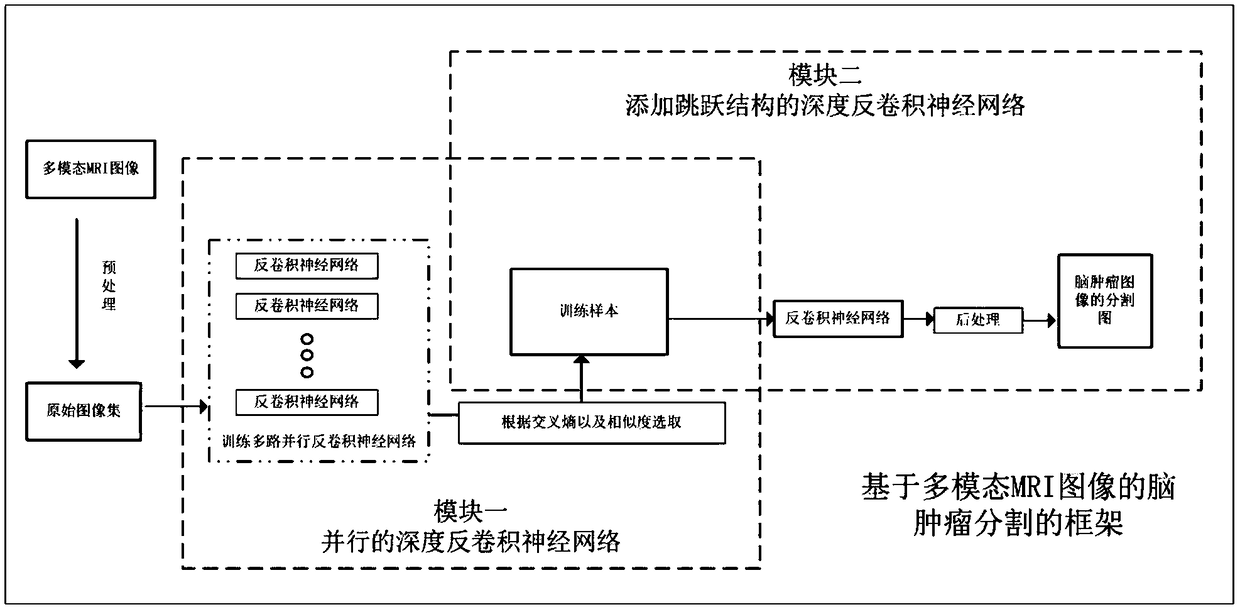Automatic segmentation of brain tumor images based on convolution neural network
A convolutional neural network and automatic segmentation technology, applied in the field of medical image segmentation and deep learning, can solve the problems of long image preprocessing time, rough segmentation of brain tumor images, and unbalanced categories, and achieve shortened processing time and image preprocessing. Handle the effect of convenient operation and solve the category imbalance
- Summary
- Abstract
- Description
- Claims
- Application Information
AI Technical Summary
Problems solved by technology
Method used
Image
Examples
Embodiment 1
[0037] The method for automatically segmenting brain tumor images based on convolutional neural networks in the present invention includes multimodal MRI images of brain tumors, and further includes the following steps:
[0038] Step 1. Acquire multimodal MRI images of brain tumors and perform image preprocessing to obtain an original image set;
[0039] Step 2. Construct a framework for brain tumor segmentation based on multimodal MRI images; the framework includes module one and module two, and module one includes 3D convolutional neural network, residual unit and transposed convolution as the basis to form a parallel The deep deconvolution neural network is used to output the contour map of the brain tumor segmentation image; the second module includes adding a skip structure on the basis of the deep deconvolution neural network structure in the module one, which is used to output the lesion region segmentation of the brain tumor image picture;
[0040] Step 3. Input the o...
Embodiment 2
[0048] This embodiment makes the following further limitations on the basis of Embodiment 1: in the step 1, the multimodal MRI images are four kinds of modality images Flair, T1, T2, T1C, and the two modes of Flair and T2 N4ITK is used to correct the bias field of the images in the different modalities, and adjust the contrast of the images in the T1C and T1 modalities. Grayscale normalization of images between different individuals: first subtract the mean value of the entire image and divide by the standard deviation of the brain region, adjust the pixel values of all images to the [-5, 5] interval, and normalize the entire image Normalized to [0, 1], non-brain regions are set to 0. Finally, translation transformation, twist enhancement and elastic deformation are performed on the preprocessed data. The detailed process is as follows: firstly, multimodal MRI images of brain tumors need to be acquired. In this method, only four modal images of Flair, T1, T2, and T1C are ...
PUM
 Login to View More
Login to View More Abstract
Description
Claims
Application Information
 Login to View More
Login to View More - R&D
- Intellectual Property
- Life Sciences
- Materials
- Tech Scout
- Unparalleled Data Quality
- Higher Quality Content
- 60% Fewer Hallucinations
Browse by: Latest US Patents, China's latest patents, Technical Efficacy Thesaurus, Application Domain, Technology Topic, Popular Technical Reports.
© 2025 PatSnap. All rights reserved.Legal|Privacy policy|Modern Slavery Act Transparency Statement|Sitemap|About US| Contact US: help@patsnap.com



